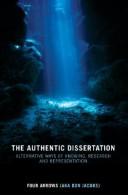| Listing 1 - 5 of 5 |
Sort by
|
Book
ISBN: 164802081X 9781648020810 9781648020803 1648020801 9781648020797 1648020798 Year: 2020 Publisher: Charlotte, North Carolina
Abstract | Keywords | Export | Availability | Bookmark
 Loading...
Loading...Choose an application
- Reference Manager
- EndNote
- RefWorks (Direct export to RefWorks)
"The Diversity and Inclusion (D&I) Movement in Higher Education and in Corporations, whether well intended or window dressing, is largely unsuccessful because it uses the same dominant worldview that has caused disrespect for D&I. Indigenous Worldview is founded on respect for diversity and is therefore the ultimate source for bringing the authentic goals of D&I initiatives to fruition. This book offers an engaging opportunity to learn why this can work and how to make it happen"--
Social integration. --- Social change. --- Indian philosophy. --- Cultural pluralism.
Book
ISBN: 9460913520 9460913512 Year: 2011 Publisher: Rotterdam ; Boston : Sense Publishers,
Abstract | Keywords | Export | Availability | Bookmark
 Loading...
Loading...Choose an application
- Reference Manager
- EndNote
- RefWorks (Direct export to RefWorks)
Two noted professors on opposite sides of the cultural wars come together and engage in "cooperative argumentation." One, a "Jewish, atheist libertarian" and the other a "mixed blood American Indian" bring to the table two radically different worldviews to bear on the role of colleges and universities in studying social and ecological justice. The result is an entertaining and enlightening journey that reveals surprising connections and previously misunderstood rationales that may be at the root of a world too polarized to function sanely.
Comparative education. --- Education, Higher. --- Education --- Social Sciences --- Theory & Practice of Education --- Education, Comparative --- College students --- Higher education --- Education. --- Higher education. --- Higher Education. --- Postsecondary education --- Universities and colleges --- History

ISBN: 9780415442237 Year: 2008 Publisher: New York (N.Y.) Routledge
Abstract | Keywords | Export | Availability | Bookmark
 Loading...
Loading...Choose an application
- Reference Manager
- EndNote
- RefWorks (Direct export to RefWorks)
Book
ISBN: 9460911102 Year: 2010 Publisher: Rotterdam, The Netherlands ; Boston ; Taipei : Sense Publishers,
Abstract | Keywords | Export | Availability | Bookmark
 Loading...
Loading...Choose an application
- Reference Manager
- EndNote
- RefWorks (Direct export to RefWorks)
This book begins a long overdue dialogue between Western neuropsychology and Indigenous wisdom. The latter holds that technology, including that which supports the neurosciences, is an important aspect of humanity, but that without a deeper understanding of the sacred, natural world, its consequences will continue to disrupt the balance of life on Earth. This book argues that without incorporating Indigenous wisdom into theories relating to brain research and scientific assumptions about human nature, humanity may never learn how to avoid this problem. After summarizing current studies about such important topics as generosity, truthfulness, courage, humour, art, spirituality and lateralization, two indigenous scholars and a South Korean neuroscientist discuss the research conclusions. In most cases, the ancient knowledge of Indigenous Peoples reveals significantly contrasting perspectives. By offering students of neuropsychology and the various schools of neurophilosophy radically different views than those seen through the lens of Western science, this book will help assure that understandings about the human brain may lead to a more healthy balance in human affairs. Questions at the end of each chapter give opportunities for the reader to continue the dialogue and find further studies to support or refute the Indigenous assertions.
Book
Year: 2002 Publisher: Charleston, WV : ERIC Clearinghouse on Rural Education and Small Schools,
Abstract | Keywords | Export | Availability | Bookmark
 Loading...
Loading...Choose an application
- Reference Manager
- EndNote
- RefWorks (Direct export to RefWorks)
Indians of North America --- Native language and education --- Education --- Finance.
| Listing 1 - 5 of 5 |
Sort by
|

 Search
Search Feedback
Feedback About UniCat
About UniCat  Help
Help News
News